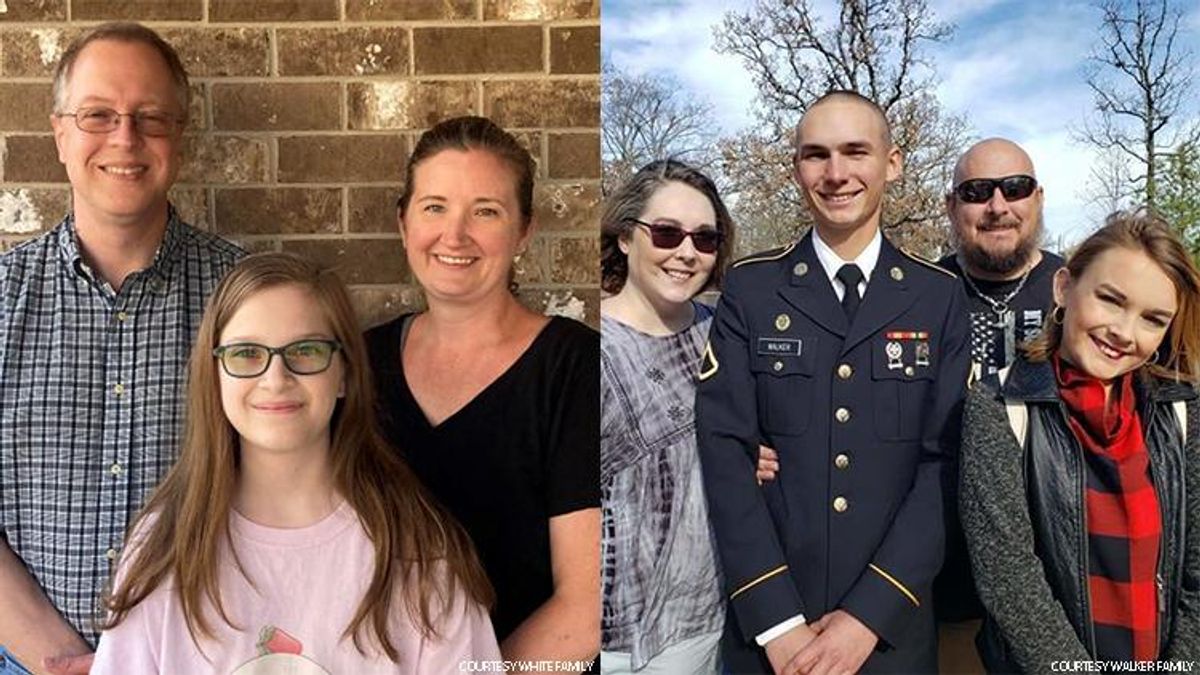Two lawsuits have been filed against Alabama's new law making it a felony to provide gender-affirming care to minors.
The legislation, signed into law by Gov. Kay Ivey last week, threatens health care professionals with up to 10 years in prison for violation. It prohibits doctors from prescribing hormone treatment to trans youth and bans gender-affirming surgery on minors -- though such surgeries are mostly unheard of. The law also forces schools to tell a student's parents or guardians if a student's gender identity is different from that assigned at birth.
Two doctors and two families with transgender children filed suit Monday in U.S. District Court for the Northern District of Alabama. They are represented by the Southern Poverty Law Center, GLBTQ Legal Advocates and Defenders, the National Center for Lesbian Rights, and the Human Rights Campaign with King & Spalding LLP and Lightfoot, Franklin & White LLC.
The new law's "prohibitions on the provision of safe, effective, and medically necessary care for transgender minors lack a rational foundation and serve no legitimate purpose," their suit states. The law "violates Section 1557 of the Affordable Care Act, as well as constitutional guarantees of equal protection and due process, impermissibly intruding into parents' fundamental right to obtain safe, effective, and medically necessary care for their children," it continues.
Two Alabama families with trans kids filed suit Tuesday in U.S. District Court for the Middle District of Alabama. They are represented by the American Civil Liberties Union and its Alabama affiliate, Lambda Legal, Transgender Law Center, and Cooley LLP. They likewise claim violation of the constitutional guarantee of equal protection of the laws.
"The medical care criminalized by Alabama has been recognized as safe and effective by the American Medical Association, the American Academy of Pediatrics, the Endocrine Society, the American Psychological Association, and every other leading relevant professional medical association," their suit says. "The law is so broad that doctors, nurses, parents, clergy members, teachers, guidance counselors, and perhaps even transgender youth themselves are subject to criminal penalty -- as is anyone else who could conceivably be said to 'cause' a transgender minor to receive medical care that affirms their gender identity."
The plaintiffs in the first suit are physicians Morissa Ladinsky and Hussein Abdul-Latif, and parents identified as Robert Roe, father of Mary Roe, and Jane Doe, mother of John Doe. It names as defendants Ivey, Alabama Attorney General Steve Marshall, Shelby County District Attorney Jill H. Lee, and Jefferson County District Attorney Daniel Carr. The complaint, Ladinsky v. Ivey, is available here.
"By signing SB 184 Governor Ivey has told kind, loving, and loyal Alabama families that they cannot stay here without denying their children the basic medical care they need," Ladinsky said in a press release. "She has undermined the health and well-being of Alabama children and put doctors like me in the horrifying position of choosing between ignoring the medical needs of our patients or risking being sent to prison."
The plaintiffs in the second suit are the Walker and White families. It names Marshall as a defendant, along with Limestone County District Attorney Brian C.T. Jones and Lee County District Attorney Jessica Ventiere. The complaint, Walker v. Marshall, is available here.
"I know that I am a girl and I always have been," 15-year-old H.W., the daughter of Jeff and Lisa Walker, said in a press release. "Even before I learned the word 'transgender' or met other trans people, I knew myself. I did not choose to experience bullying and discrimination because I am transgender. I chose to be proud of who I am. The possibility of losing access to my medical care because of this law causes me deep anxiety. I would not feel like myself anymore if this lifesaving medication was criminalized."
An Arkansas law banning gender-affirming care for minors has been temporarily blocked by a judge while a lawsuit against it is heard. That law does not provide for criminal penalties for violation, instead calling for discipline by regulators. Alabama's is the first law to criminalize the provision of gender-affirming care. In Texas, the governor has directed the state's Department of Family and Protective Services to investigate parents who allow their children access to this care as potential child abusers. That order is also temporarily blocked by a court while a lawsuit proceeds.



















































































